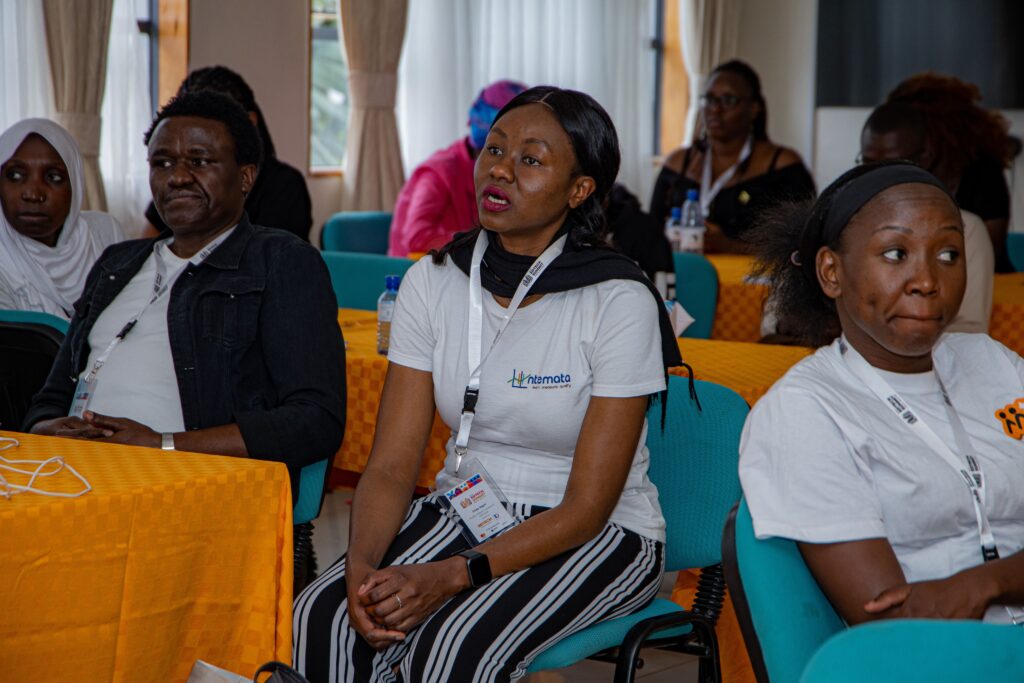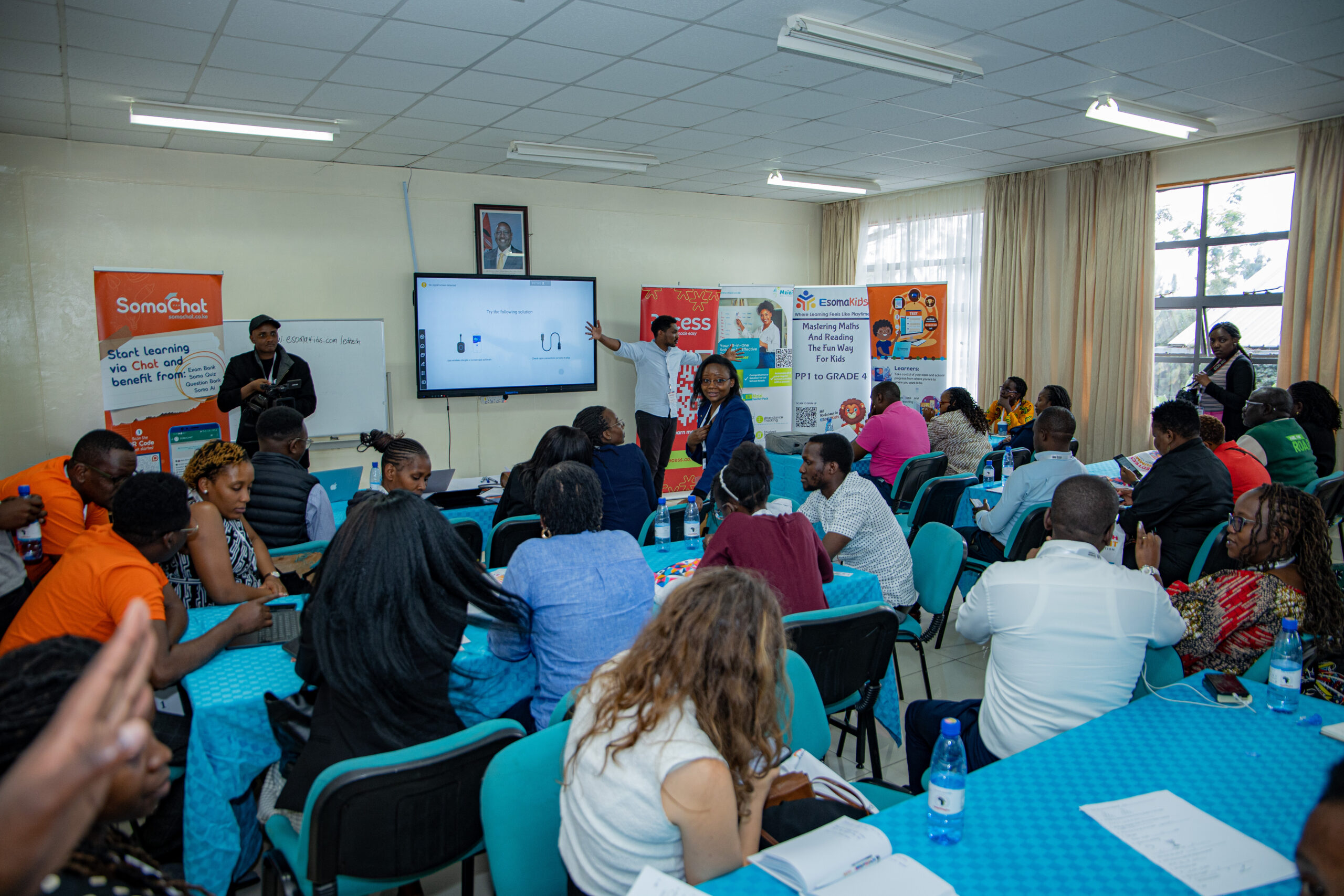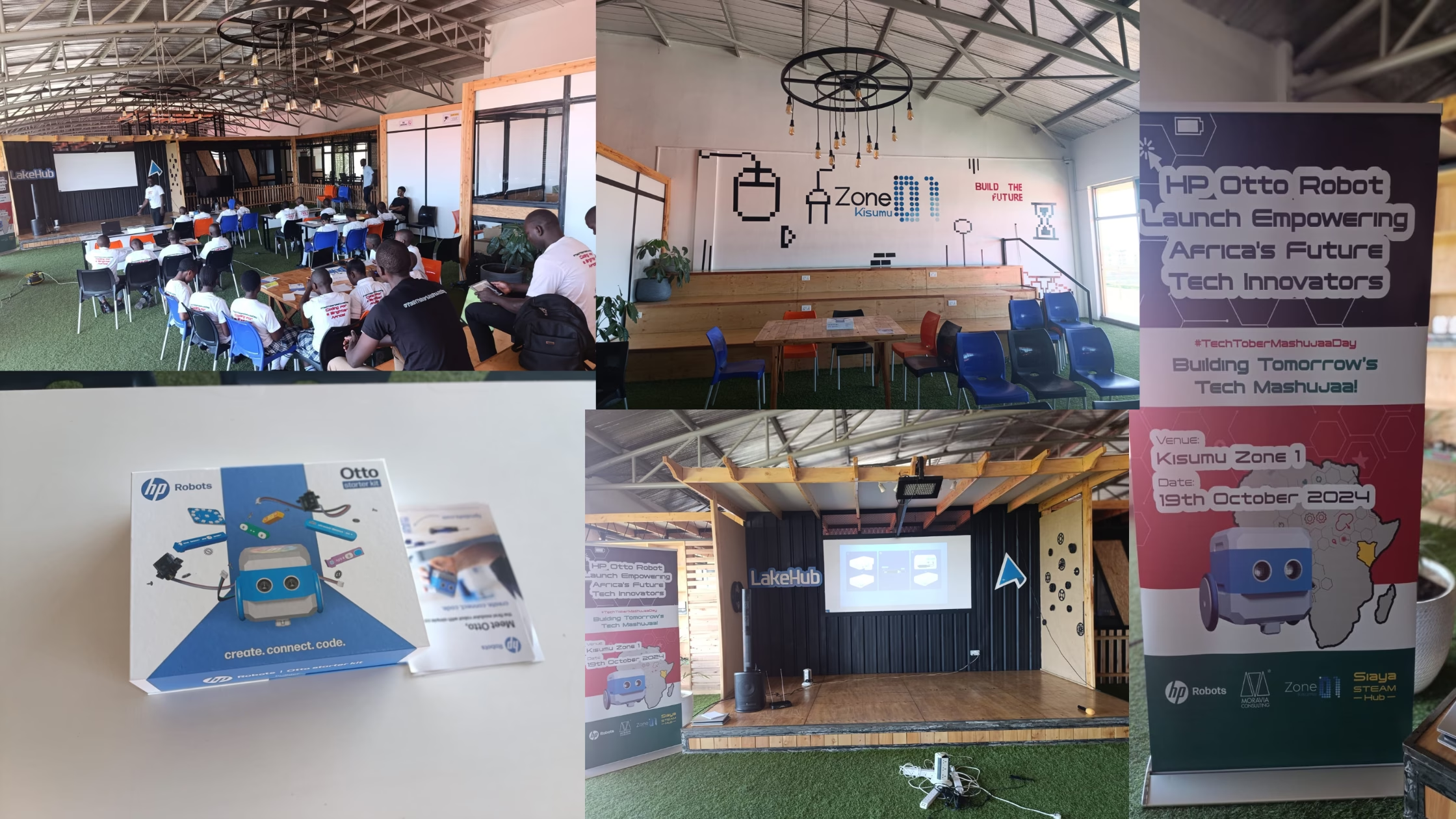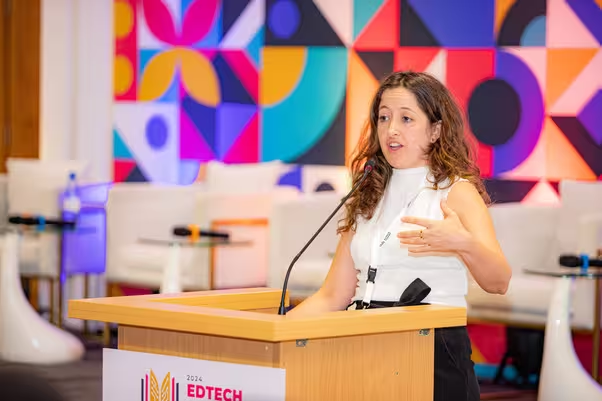
The annual EdTech Summit agenda includes breakout sessions curated with different learnings and case studies.
This year, two organizations in the EdTech ecosystem ran the demo sessions. iHub, which has an EdTech fellowship in partnership with the Mastercard Foundation, conducted the demo sessions for EdTech entrepreneurs.
These sessions provide a platform for innovators to showcase their educational technology solutions, allowing educators, administrators, parents, and tech enthusiasts to experience these tools firsthand and determine which ones best meet their needs.
As noted by Measured, live demos are among the most effective methods for demonstrating progress and gathering feedback. They enable participants to quickly grasp the functionalities and benefits of different products and services through direct interaction.
The EdTech entrepreneurs demoing their products were Somachat, Recess, Mzizi, Ntemata, Esoma Kids, and Kuze AI. These sessions highlighted several key benefits crucial to the growth and success of the EdTech ecosystem.
Throughout their presentations, each speaker paused to guide the delegates through the process of navigating the application, urging them to take out their phones and explore a specific feature. This hands-on approach not only made it easier for potential users to understand the technology but also fostered a deeper connection with the products.
Live demos present opportunities for immediate feedback. Participants have the opportunity to immediately ask questions, voice concerns, and offer suggestions. Lewis Njoroge from Mzizi, an online platform for school process automation, emphasized that these sessions offer invaluable real-time feedback from existing clients while also attracting new potential customers.
This interactive environment is critical for EdTech companies, as it allows them to address uncertainties and refine their solutions to better meet the needs of educators and students.
This was evident at this year’s EdTech Summit, where delegates raised pertinent questions, such as whether platforms were free or fee-based, the applicability of EdTech solutions across different education levels, and the capabilities of the technology in grading and standardization.
The phrase “seeing is believing” works well during these demo sessions. The tech companies gain the audience’s trust during these practical sessions. This transparency is essential in an industry where educators are often cautious about adopting new technologies without clear evidence of their efficiency.
Moreover, live demos are more engaging than passive presentations. They capture the audience’s attention by demonstrating real-time problem-solving, which keeps attendees actively involved. This higher level of engagement leads to better retention of information, making it more likely that participants will consider adopting the demonstrated technology.
Benta Otsyeno, a training coordinator with Nawiri, noted that the practical displays allowed her to see how different EdTech solutions work and helped her identify Somachat as a user-friendly option accessible to parents with smartphones despite their literacy level.
Decision-makers typically attend summits like this one in search of practical, implementable solutions. Therefore, these demos enable EdTech entrepreneurs to demonstrate the application of their technology in real-world educational settings, highlighting its relevance and effectiveness. This practical approach can significantly influence purchasing decisions.
Benta, for instance, pointed out that Mzizi distinguished itself with its Parent Engagement Platform, a feature that parents who frequently travel for work or have children in boarding school appreciate.
Lastly, live demos present opportunities for partnerships with other organizations. Many EdTech companies rely on collaborations to enhance their service offerings. For instance, Somachat collaborates with organizations such as Longhorn to supply standardized question papers, which it then uploads onto its exam and question banks for client use.
EdTech Summits offer a unique and valuable platform for EdTech entrepreneurs to network with other players in the EdTech ecosystem, either formally or informally. This year’s curation involved demo sessions to create a mutually beneficial environment for EdTech entrepreneurs and attendees.
These sessions go beyond merely showcasing products; they foster engagement, build trust, and create lasting relationships with potential clients, ultimately driving the growth and success of the EdTech ecosystem.




